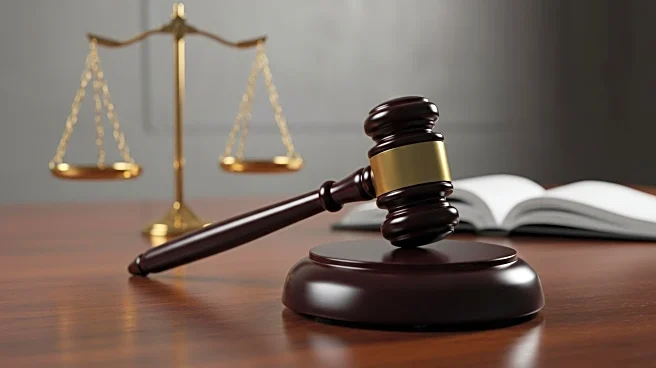What's Happening?
Connor Stalions, a central figure in a scandal involving the Michigan football program, has been hit with an eight-year show-cause penalty by the NCAA. This penalty requires any school attempting to hire him to justify the decision to the NCAA, effectively acting as a ban from college athletics. Stalions' attorney, Brad Beckworth, released a statement condemning the NCAA's actions, describing them as a 'vendetta' against his client. Beckworth praised Stalions' character and expressed confidence in his future involvement in football despite the sanctions. The attorney also criticized the NCAA's investigation process, likening it to a 'sham' and referencing the Netflix documentary 'Sign Stealer' as evidence of the NCAA's compromised integrity.
Why It's Important?
The NCAA's decision to impose an eight-year show-cause penalty on Connor Stalions has significant implications for college athletics, particularly in terms of enforcement and governance. This case highlights ongoing debates about the NCAA's role in maintaining amateurism and its investigative practices. The penalty could deter other coaches from engaging in similar activities, reinforcing the NCAA's authority. However, the criticism from Stalions' attorney raises questions about the fairness and transparency of NCAA investigations, potentially influencing public perception and future policy discussions. The outcome of Michigan's appeal could set a precedent for how similar cases are handled in the future.
What's Next?
Michigan has announced plans to appeal the NCAA's ruling, which could lead to a reassessment of the penalties imposed on Stalions and other coaches involved in the scandal. The appeal process may bring further scrutiny to the NCAA's investigative methods and decision-making criteria. Depending on the outcome, there could be changes in how the NCAA enforces its rules and handles allegations of misconduct. Stakeholders in college athletics, including coaches, institutions, and athletes, will be closely monitoring the appeal and its implications for the governance of college sports.
Beyond the Headlines
The controversy surrounding Connor Stalions and the NCAA's penalties touches on broader issues of ethics and governance in college sports. The case raises questions about the balance between maintaining amateurism and the commercial interests of college athletics. It also highlights the potential for conflicts of interest and the need for transparency in enforcement processes. As the appeal unfolds, there may be discussions about reforming NCAA policies to better align with the evolving landscape of college sports and the rights of student-athletes.











